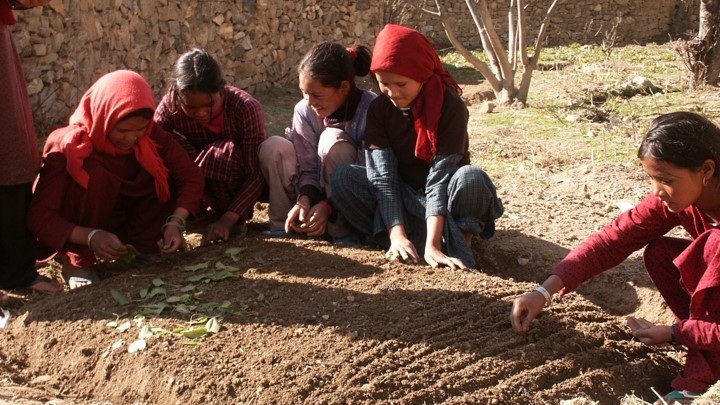Many people are working to increase the understanding and use of permaculture within the international development movement.
Some useful links and connections are:
Re-Alliance – a coalition that is bringing together field practitioners, policy makers, educators, community leaders and humanitarian and development workers. Sharing skills and experiences to grow the influence and impact of regenerative development in the humanitarian field.
- Re-Alliance webinars
- Re-Alliance brokering service – to connect with experts in this field
PermacultureForRefugees.org – includes Case Studies and downloadable PDF Permaculture for Refugee Camps guide:
Permaculture and Disaster Risk Reduction mailing list and calls – a working group that collaborates online through a mailing list and fortnightly community calls in both Asia Pacific and European Atlantic time zones.
Garden Africa – works with the most vulnerable people to find plant-based solutions to their everyday challenges – years of highly effective and creative work that has inspired many projects to create meaningful, long-lasting change.
The Lemon Tree Trust – is transforming refugee camps, one garden at a time. Gardening is a powerful therapeutic tool, addressing issues of isolation and mental health, producing beauty, belonging, food security, and promising economic stimulation. Lemon Tree Trust pilots agricultural businesses and gardening initiatives in refugee communities, creating employment and restoring cultural identity, dignity and purpose.
Haiti: how permaculture is proving a vital tool in disaster relief – an article in Permaculture Magazine.
Lush Spring Prize – many of the projects supported by this prize are relevant and provide excellent examples that could be copied or adapted elsewhere – see IPEN’s Case Studies of some of these projects.
The Bluepint Alliance – an international network that is very active in these areas.
Courses:
Applewood Permaculture (UK) online remote learning and face-to-face (26-29th Sept) Permaculture for Development Workers 2019 course, led by Chris Evans (HPC) and Gisele Henriques (Resilient Livelihoods Advisor, CAFOD) with other experienced practitioners. Interviews from last year’s course participants describe how valuable the course was for them. The course is for anyone involved in the development sector or the communities they work with. Participants’ comments about the 2018 course include:
- “… in this particular course things just “clicked” in my head. The project work was brilliant and the support and plethora of resources were very useful.”
- “It was a really positive experience and a great course to introduce me to the world of permaculture and start thinking about how to bridge the gaps between this and the development community. For me Giselle’s work was really helpful and Chris’ introductions to permaculture were great.”
- “Your P4D course was great! I would love to take it again… I loved everything. Applewood staff & venue is great. The networking opportunities I liked very much, as the participants are mostly professional – so have plenty of knowledge… the refugee camp project presentation was great. Case studies like that, from the participants are interesting, and also the networking discussions.”
Case Studies:
These describe the clear benefits and outcomes of applying permaculture design and practice in a range of international development contexts – see our case studies page.
IPEN will build its resources in this area, has helped promote the course above, is contributing to discussions on permaculture for refugees and disaster relief, and is working with others to help create a curriculum guide on the theme of ‘sustainable food and nutrition’, with a separate new international network on this theme likely to emerge.
